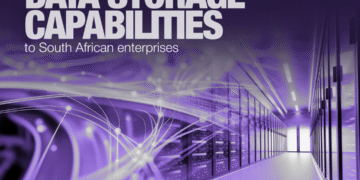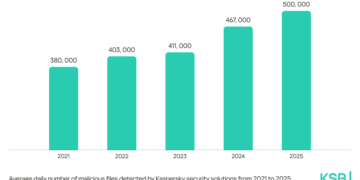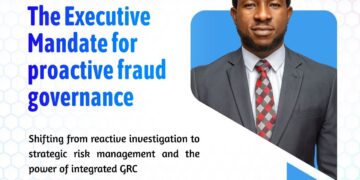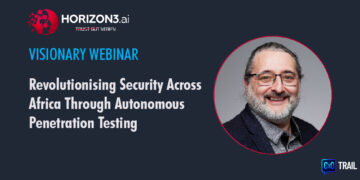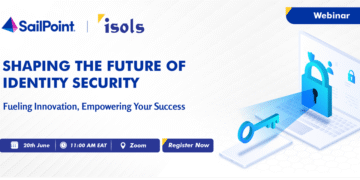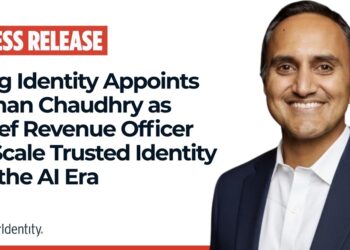As the Founder of Digital Encode and a multi-award-winning expert, Professor Obadare Peter Adewale stands as a leading force in shaping a secure digital landscape for Africa. With over two decades of experience and a staggering portfolio of more than 60 international professional certifications, he has earned a reputation as arguably the continent’s most “credentialed” digital trust leader.
Driven by a singular vision to make the internet a safer place, he founded Digital Encode to provide cutting-edge IT assurance to businesses across Nigeria and beyond. His pioneering work includes becoming Africa’s first EC-Council Licensed Penetration Tester and Nigeria’s first Professor of Practice in Cybersecurity. A Fellow of the British Computer Society and a member of the Forbes Technology Council, his influence extends from advising governments on national policy to mentoring the next generation of cybersecurity professionals. His work is guided by the philosophy that technology must serve the purpose of both solving problems and building trust.
A Conversation with Obadare Peter Adewale
Q. You’ve pioneered several firsts, from being Africa’s first EC-Council Licensed Penetration Tester to Nigeria’s first Professor of Practice in Cybersecurity. How have these milestones influenced your mission to shape Africa’s cybersecurity maturity and digital trust landscape?
A: It has been both humbling and strategically vital for my mission to advance Africa’s cybersecurity maturity and digital trust agenda to pioneer several “firsts.” These include becoming Africa’s first EC-Council Licensed Penetration Tester (LPT) and Nigeria’s First Professor of Practice in Cybersecurity. Each milestone demonstrates what becomes possible when deep expertise combines with intentional leadership. These accomplishments represent far more than titles; they signify a commitment to raising standards, building local capacity, and ensuring Africa’s place in global cybersecurity progress.
These milestones have provided a powerful platform. They allow me to influence policy and regulatory discourse, contributing to frameworks initiatives like the Central Bank of Nigeria (CBN) IT Standards Blueprint, Nigeria Data Protection Act and state-level cybersecurity initiatives.
My professor of practice deepen the town and gown relationship that is bridges the gap between academia and industry by enriching curricula with real-world insights and mentoring future cybersecurity leaders. Crucially, I’m establishing scalable talent pipelines, including initiatives targeting the training of over one million cybersecurity professionals in Nigeria – an essential investment for a resilient digital economy. This work fundamentally fosters the digital trust necessary for secure digital transformation across all sectors, especially in emerging economies.
In essence, these pioneering achievements are not endpoints but strategic leverage points. They reinforce my dedication to building an Africa where digital trust is not an afterthought, but an essential enabler of innovation, governance, and economic growth.
Q: With your work spanning ISO 27001, COBIT, PCI DSS, and TOGAF, how do you approach implementing layered, risk-based cybersecurity frameworks within complex African environments?
A: Implementing layered, risk-based cybersecurity frameworks across Africa’s diverse environments demands a nuanced approach grounded in local realities. My work with standards like ISO 27001, COBIT, PCI DSS, and TOGAF consistently proves that success lies in harmonizing global best practices with regional context.
I treat these frameworks not as rigid checklists but as an adaptive tools for risk-centric integration. This strategy aligns cybersecurity with business objectives, regulatory requirements, and operational maturity. For instance:
While ISO 27001 establishes a vital foundation for Information Security Management Systems, I adapt its controls to address region-specific risks—like low cybersecurity inteliigence quotient and infrastructure misconfiguration gaps. COBIT’s governance focus enables me to position cybersecurity as a board-level business enabler tied directly to performance and compliance, moving it beyond an IT concern. Though often associated with finance, PCI DSS offers adaptable payment data protection principles I extend to other sectors handling sensitive data. And TOGAF ensures architectural cohesion across people, processes, and technology—critical when scaling secure systems in legacy-heavy or fragmented environments.
Operationally, I deploy a layered defense-in-depth model prioritising critical assets and high-risk processes. Equally important is capacity building at every organisational tier—from leadership to operations—ensuring frameworks are sustainably owned, not just implemented.
Africa’s complexity isn’t a barrier; it’s a catalyst for tailored resilience. My approach ensures every framework remains contextually adaptive, risk-informed, and culturally aligned—turning unique challenges into strategic advantages.

Q: As Technical Partner to the Central Bank of Nigeria’s NeFF initiative for over a decade, how have you contributed to shaping national policy responses to electronic fraud and cybercrime in the financial sector?
A: For over a decade, serving as Technical Partner to the Central Bank of Nigeria’s Nigeria Electronic Fraud Forum (NeFF) has been both an honor and a profound responsibility. In this role, I’ve focused on developing and implementing evidence-based strategies to strengthen the financial sector’s resilience against electronic fraud and cybercrime.
My contributions center on three critical areas:
As a technical thought leader, I’ve shifted the national conversation from reactive fraud response to proactive cyber risk management. This includes guiding the movement from magnetic stripe card to EMV card and integration of global frameworks—PCI DSS, ISO 27001, and other relevant standards —into policies adopted by banks, fintechs, and regulators. My technical guidance has directly influenced sector-wide controls, transaction monitoring standards, and collaborative threat intelligence models.
Through capacity building and knowledge transfer, I’ve designed and facilitated NeFF workshops, threat simulations, and roundtables that upskilled hundreds of bank CISOs, fraud managers, and regulators. These sessions translate complex threats into actionable controls, empowering institutions to build robust incident response capabilities.
In policy and framework development, I’ve collaborated closely with CBN and NeFF leadership to draft critical documents—including the Nigerian Cyber Threat Intelligence Framework, e-payment fraud prevention guidelines, and interbank cybersecurity protocols. These efforts institutionalize structured, coordinated responses to emerging threats across Nigeria’s financial ecosystem.
Ultimately, I serve as a bridge between strategy and implementation, ensuring national policies deliver practical protection. As cyber threats evolve, I remain committed to advancing digital trust and safeguarding Nigeria’s financial future through collaborative action.
Q: Now serving as Nigeria’s first Certified Chief Artificial Intelligence Officer (CAIO), what strategic challenges do you see at the intersection of AI governance, cybersecurity risk, and digital sovereignty in Africa?
A:Serving as Nigeria’s first Certified Chief Artificial Intelligence Officer (CAIO) is both a profound honor and a vital responsibility at a time when artificial intelligence is rapidly transforming critical sectors such as national security, healthcare, finance, and governance.
Africa finds itself at a crucial crossroads—where AI governance, cybersecurity, and digital sovereignty intersect. While this presents immense opportunities, it also demands urgent and strategic action. Many African countries still operate without unified frameworks for responsible AI adoption, leaving gaps that expose us to risks around data protection and algorithmic accountability. My approach as CAIO emphasizes the development of ethical, secure, and locally relevant AI strategies that meet global best practices while addressing our unique regional challenges.
The rise of generative AI, deepfakes, and autonomous technologies brings complex threats—from AI-powered phishing to synthetic identity fraud and advanced cyberattacks. These challenges are particularly concerning given the continent’s uneven cybersecurity maturity. We must integrate AI-specific threat modeling into our national security frameworks, enforce transparency in algorithms, and update our incident response systems to stay ahead of emerging risks.
Equally pressing is the issue of digital sovereignty. Much of Africa’s AI infrastructure, data, and algorithms remain under external control, raising concerns over biased outcomes and dependency on foreign systems. To protect our future, we must invest in homegrown AI capabilities, build sovereign data infrastructure, and promote regional cooperation to safeguard digital assets and intellectual property.
This is a defining moment for Africa. Our future in AI must be shaped through strong governance, robust security, and inclusive innovation. As CAIO, my role is to ensure that strategic vision is matched with practical execution—bridging innovation with national resilience.
Africa must not remain a passive consumer of technology. We must take the lead in crafting a digital future that is sovereign, secure, and designed in our own image.
Q: Penetration testing has long been part of your core technical foundation. From your perspective, what critical gaps still persist in how African enterprises approach offensive security and red teaming today?
A: Penetration testing has been central to my career, notably as Africa’s first EC-Council Licensed Penetration Tester and a leader in offensive security for nearly two decades. Despite growing cybersecurity awareness, many African organizations still treat testing as a compliance task rather than a risk-focused strategy. Assessments are often superficial, lacking the depth needed to simulate real-world threats. True red teaming—encompassing social engineering, insider threat simulation, and physical breaches—remains rare, and there’s a critical disconnect between offensive findings and defensive action. The continent also faces a shortage of advanced offensive security professionals and limited efforts to translate technical risks into business terms. To build meaningful cyber resilience, enterprises must shift toward continuous, intelligence-led simulations, foster red-blue team collaboration, and align testing with strategic business goals. Offensive security, when done right, is not just about finding weaknesses—it’s about strengthening trust, executive confidence, and national digital defense.
Q: As Professor of Practice at Miva Open University, what innovations are you introducing to better connect academic theory with real-world cyber strategy, governance, and leadership development?
A: As a Professor of Practice at Miva Open University, my mission is to deepen town and gown relationship that is bridge the gap between academic theory and the fast-evolving demands of cybersecurity, governance, and digital leadership. Today’s complex threat landscape requires more than textbook knowledge—it demands professionals who can think critically, lead with strategy, and adapt swiftly to emerging challenges.
To address this, I have introduced a forward-thinking model that integrates international standards such as the International Organization for Standardization 27001, the National Institute of Standards and Technology Cybersecurity Framework, the Control Objectives for Information and Related Technologies framework, and the Payment Card Industry Data Security Standard. These are applied alongside practical use cases, industry-specific risk scenarios, and immersive simulations. Our students go beyond theoretical learning—they develop the ability to apply knowledge in corporate boardrooms, national security environments, audit committees, and public policy spaces.
Our executive-style learning approach features interactive methods such as strategic scenario planning, simulated cyber incidents, and digital war games. These activities enhance leadership capabilities and decision-making skills, preparing students to operate effectively at senior levels. We also partner with organizations in sectors like banking, telecommunications, regulation, and international development to ensure our research, internships, and projects address current, high-impact cybersecurity issues.
In addition to technical training, our curriculum places strong emphasis on policy development, building digital trust, responsible artificial intelligence, and cyber diplomacy. This multidisciplinary focus equips students to shape effective strategies for both national resilience and organizational integrity.
At Miva Open University, we are not merely awarding degrees—we are nurturing a new generation of cybersecurity professionals and digital governance pioneers, equipped to lead with integrity, credibility, and confidence across Africa and the wider world.
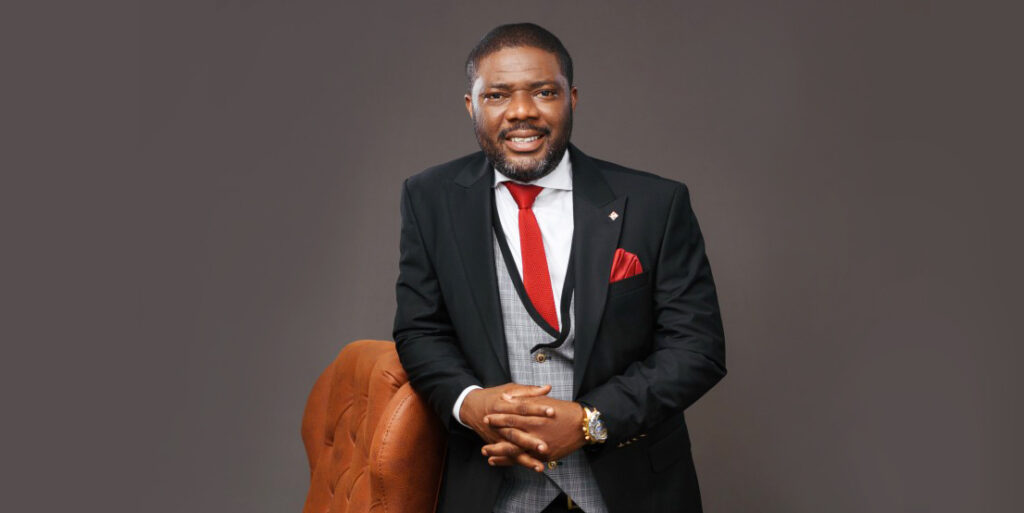
Q: Through your engagements with the AI for Developing Countries Forum and the Forbes Technology Council, what global cyber trends or governance models should African leaders be proactively embracing?
A: Through my work with global technology platforms, I’ve engaged directly with leaders shaping the future of cybersecurity and artificial intelligence governance. These experiences have provided a valuable perspective on how Africa can chart its own course in the digital age.
Globally, there is a shift toward agile, risk-based approaches to cybersecurity—models that emphasize resilience and continuous adaptation over rigid compliance. African governments must tailor such frameworks to local contexts to better manage sector-specific risks. At the same time, responsible governance of artificial intelligence must prioritize ethical design, data protection, data privacy and local innovation. Countries like Rwanda, Kenya, and Nigeria have a key opportunity to lead with policies that uphold digital sovereignty and human rights.
Strong collaboration between public institutions and the private sector is essential, particularly in intelligence sharing, critical infrastructure protection, and talent development. Africa must also take its seat at global forums to shape international norms, ensuring the continent becomes a co-creator—not just a consumer—of future digital rules. Ultimately, Africa’s digital future depends on leadership, foresight, and the will to act in its own strategic interest.
Q: You’ve mentored professionals, advised governments, and led strategic programs. What principles guide how you build cybersecurity talent and what qualities do you look for in the next generation of digital trust leaders?
A: Over the course of my career—advising governments, mentoring professionals, and leading cybersecurity programs across regions—one truth has remained central: cybersecurity is, above all, about people. While frameworks and tools matter, they cannot replace the value of ethical, skilled, and empowered professionals.
In building talent, I focus on cultivating purpose, not just career ambition. Cybersecurity should be seen as a mission to achieve digital trust and national stability. I also emphasize the importance of context—developing professionals who understand the intersection of technology with law, policy, business, and emerging trends. Finally, I champion lifelong learning and encourage a mindset of contribution—through mentorship, collaboration, and responsible leadership.
In the next generation of cybersecurity leaders, I look for more than technical ability. It is about conginitive, functional and social compentences. I also seek integrity, adaptability, strategic thinking, and the courage to lead in uncertain times. My mission is to help shape leaders who not only defend systems but earn trust, influence policy, and inspire lasting change.
Q: What long-term legacy would you most like to leave behind in cybersecurity, AI policy, or national digital strategy and what urgent decisions should Africa be making today to safeguard its future? sovereignty, and global cyber diplomacy?
A: The legacy I hope to leave in cybersecurity, AI policy, and national digital strategy is to help shape Africa into a digitally sovereign, cyber-resilient, and ethically innovative continent — one that doesn’t merely adopt technology but defines its direction, governance, and long-term value.
For me, the true impact lies in building systems that outlive individuals. I am committed to establishing strong institutions, regulatory foundations, and educational structures that consistently produce visionary thinkers, ethical innovators, and trusted digital leaders — well beyond my personal involvement. It’s not about creating success stories tied to personalities, but about institutionalizing excellence.
In a world increasingly shaped by artificial intelligence, I believe Africa must lead with ethical clarity. Our technologies should reflect our languages, cultures, and rights, not inherit the limitations of models built without us in mind. We must design and govern AI with foresight and cultural relevance, ensuring its application aligns with African values.
Equally important is Africa’s position on the global stage. We must become a key voice in cyber diplomacy, actively shaping the policies around data flows, infrastructure protection, and digital commerce. This involves more than regulation; it requires meaningful investment in local technologies, critical infrastructure, and a strong pipeline of cyber talent to secure our digital independence.
To protect its digital future, Africa must take decisive steps today. We need a unified continental approach to AI and cybersecurity governance, similar in spirit to AfCFTA, to ensure ethical standards and resilience across borders. We must stop outsourcing our digital backbone and instead build the infrastructure and innovation hubs that can support a robust digital economy. We must also be fully present and vocal in international policymaking spaces, and scale up the development of a talent force that understands both the technology and the governance it demands.
Ultimately, I want to be remembered not just as someone who spoke about transformation but as someone who helped entrench it. If Africa rises as a confident, ethical, and sovereign digital power, then I would consider my journey profoundly worthwhile.
Are you a tech leader driving change in Africa?
If you’re leading in cybersecurity, AI, or digital transformation across the continent, we’d love to share your story. To be featured on CxOTrail, email us at editorial@cxotrail.com.








